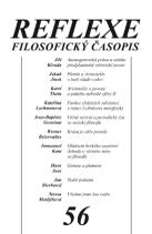The Ontological Difference as a Problem in Boëthius
Is there an “ontological difference” between esse and ens in Boethius? The present essay approaches the question by analyzing the meaning of the terms esse and id quod est as they occur in the De Hebdomadibus. The interpretation according to which the terms mean, respectively, the pure act of being and a being, is criticized as wrong. On the contrary, in Boëthius esse signifies substantial form, while id quod est signifies the concrete substance composed of matter and form. This reading is confirmed by Boëthius’s other theological treatises where esse is explicitly identified with form. A genuine distinction between esse and ens occurs in the theological writings of Marius Victorinus and in the Anonymous Commentary on Parmenides; however, it cannot be equated with the distinction between esse and id quod est as present in the De Hebdomadibus. Boëthius probably drew his distinction from the ancient commentators on Aristotle, such as Themistius and Alexander of Aphrodisias. This view is supported by the fact that in one of Alexander’s texts, an almost exact textual parallel with Axiom II from the De Hebdomadibus can be attested.
Backlinks: Reflexe 48
